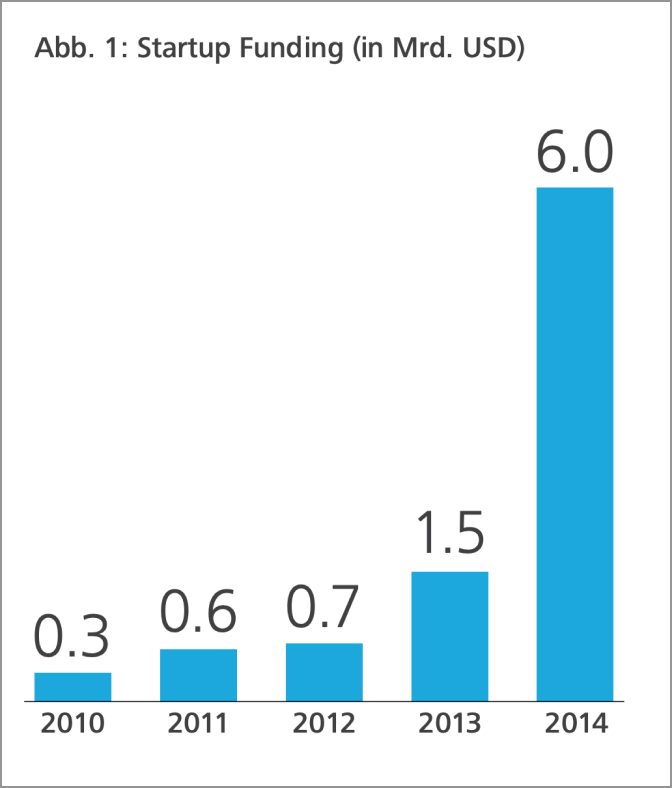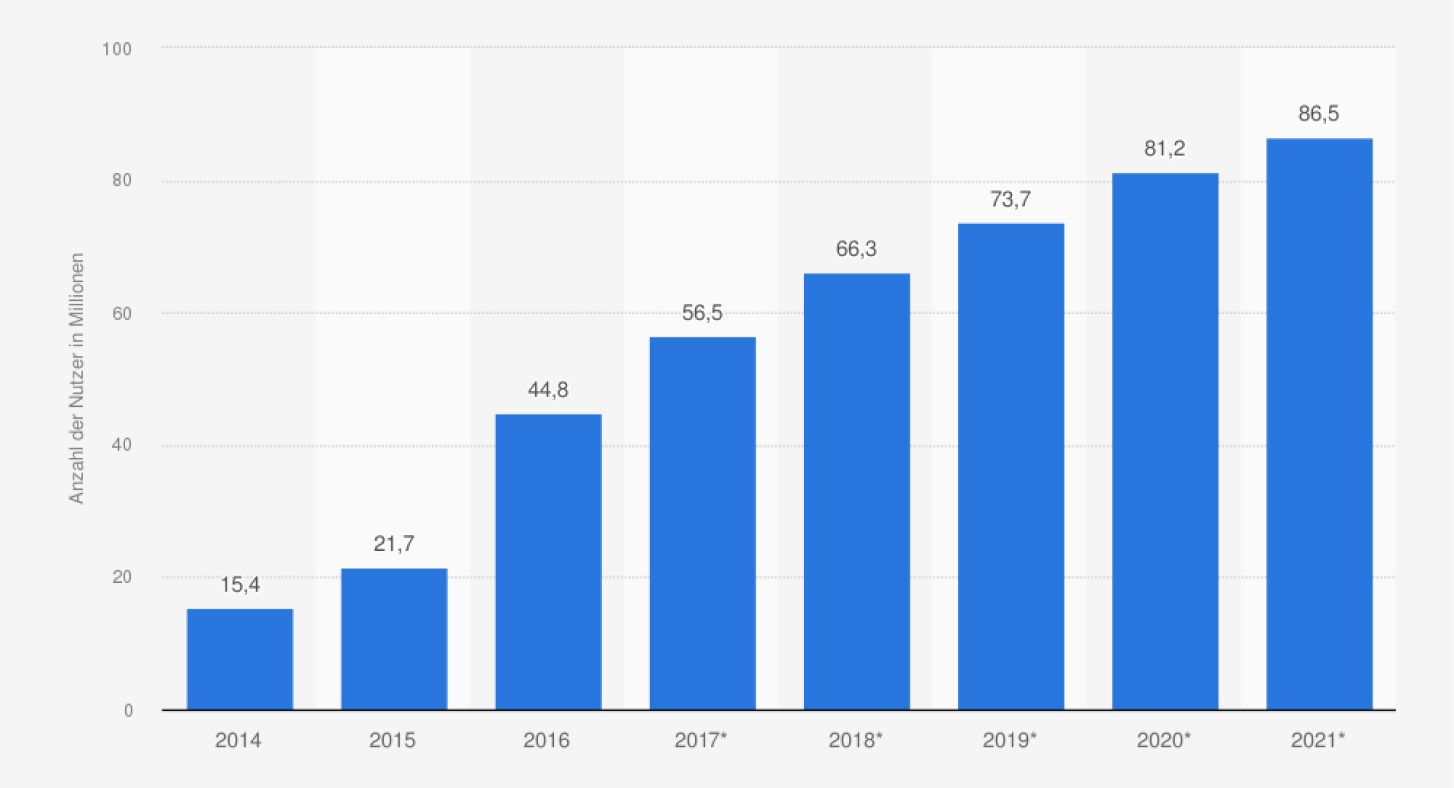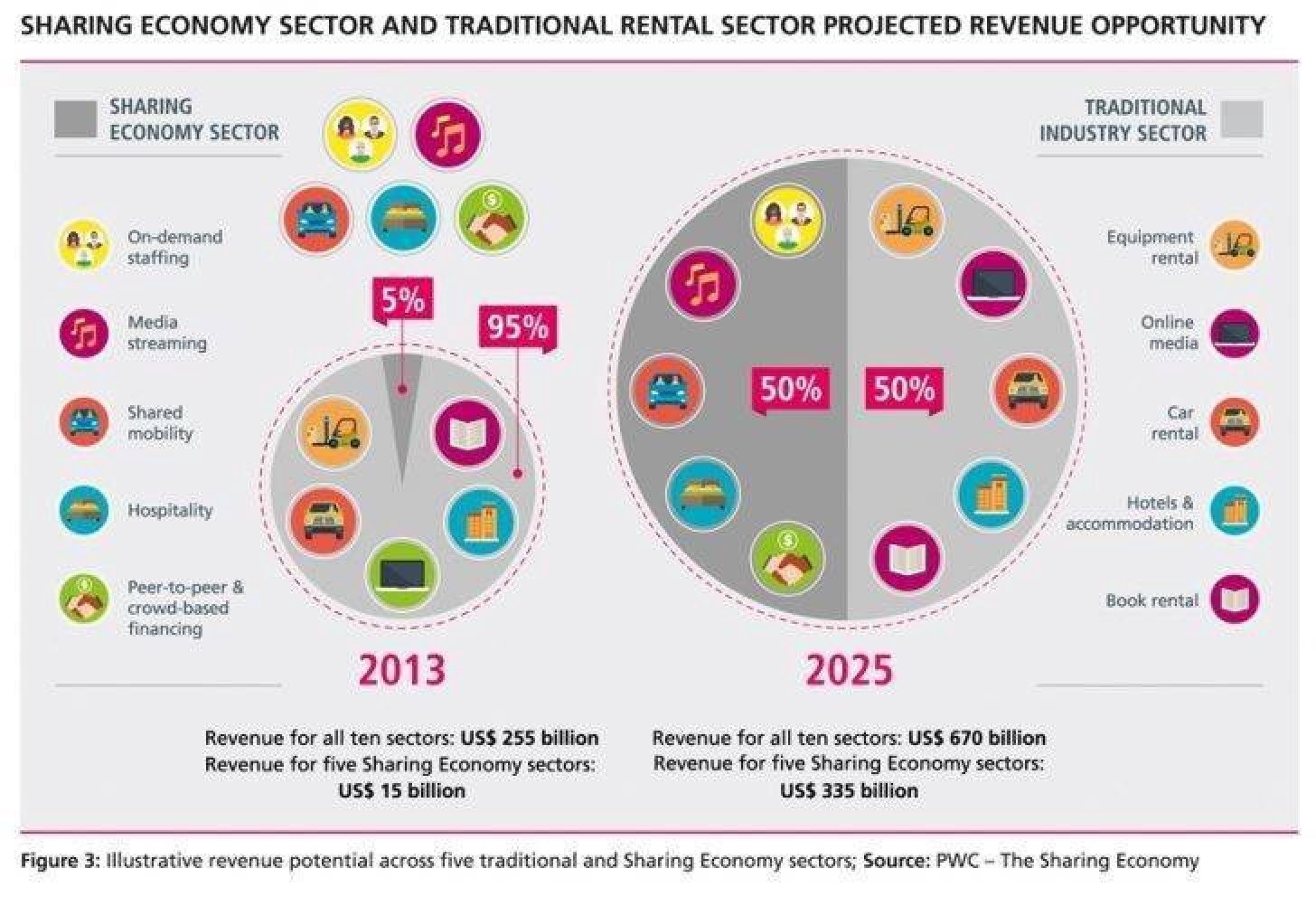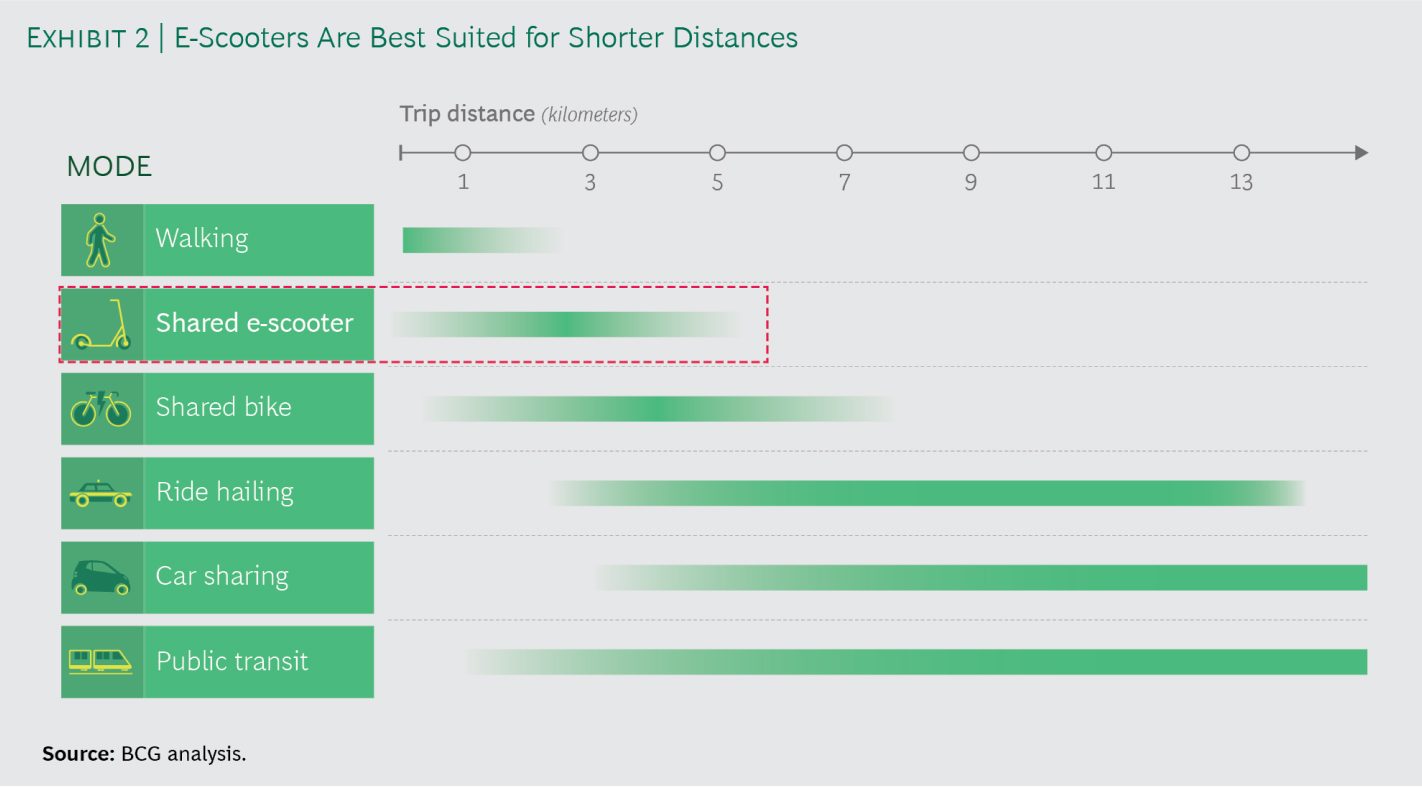
Car-free and care-free! – Is this the future of mobility?
«The sharing economy» is a term that’s inspiring people all over the world: not just early adopters and adherents of a resource-saving lifestyle, but economists, entrepreneurs, and start-ups too. Not least of all, this is backed up by numerous studies and statistics. All of us are increasingly using services provided by the sharing economy, including media streaming such as Netflix, accommodation such as Airbnb, and even the use of e-scooters. Is this rapid growth likely to continue? If so, what are the consequences – for example – for the future of mobility?
The sharing economy is all about simply using products and services rather than owning them. For many years following the start of the economic boom, the ownership of products or exclusive use of services wasn’t simply normal, but was seen as an important status symbol too; you only have to think about cars of a certain brand. Today, a paradigm shift is emerging in this respect: people are increasingly recognizing the advantages of sharing. Moreover, the fact that this approach is spreading so quickly means that the barriers and prejudices that would otherwise hinder the sharing economy are disappearing.
A new movement is rapidly gathering pace
If we look at our own behaviour and that within our immediate environment, we can see that this is actually happening. A variety of statistics provide evidence that a change in people’s mindsets is currently underway: 300 million USD was invested in start-ups with a sharing model in 2010, while the figure in 2014 was already 20 times as much, namely 6 billion USD. Astonishing but true!

Source: Deloitte/Sharing Economy: Teile und verdiene! Wo steht die Schweiz?
One further statistic reveals an increase in the number of people using sharing economy services in the USA in the years 2014-2016, together with a forecast for 2021: this assumes an annual growth rate of 28%, which corresponds to overall growth of 462%. Who wouldn’t want to become part of this market?

Source: Statista.com, 25.01.2022
Sharing models have evolved in a wide range of sectors. Services such as Netflix are now an indispensable part of our everyday lives, while others (such as shared mobility options) are only just establishing themselves. A study by PwC reveals turnover in the sharing economy of 15 billion USD in 2013, and predicts an increase to 335 billion USD by 2025. Shared mobility in particular should benefit from this incredible level of growth.

Source: weforum.org, 25.01.2022
Shared mobility is moving up a gear too
Given the vast potential within the shared mobility sector, it’s hardly surprising that many new services are springing up like mushrooms. One of the most familiar examples of this are the e-scooters that can be found in every major city. Car-sharing, P2P car-sharing, scooter and bike sharing are already some of the widespread and widely used offers. In 2018, the global market volume for shared mobility amounted to 42.3 billion USD. The figure for 2026 is estimated to be 372.1 billion USD, i.e. an increase of around 880% within just seven years1!
Share a car and you share the pain!
Why is shared mobility so popular? Thanks to the multitude of different mobility services, it’s increasingly likely that an appropriate means of transportation will always be available to us. The prestige of owning one’s own car, for example, is becoming less and less attractive given the high costs and expenditure of time and effort associated with this:
- Annual vehicle tax and insurance
- A fixed parking space or garage
- Service and maintenance costs
- Repairs
- Selling the car and buying a new one
- Changing tyres to suit different seasons
This is where use of a shared car recommends itself as a worry-free and convenient alternative. Nevertheless, it isn’t just a matter of convenience: the desire for a more sustainable relationship with our planet is also ensuring growth within the shared mobility sector. According to a survey conducted by Deloitte in 2021, 63% of respondents considered a reduction in private transportation based on fossil fuels to be desirable (e.g. via car-sharing and/or increased working from home)2. However, the majority of car shares still use vehicles powered by fossil fuels; a sustainable solution has a very different look.
Can e-scooters replace cars?
From the perspective of sustainability, e-scooters have also enjoyed huge growth. As an alternative to vehicles that use the internal combustion engine, the idea is that they should make towns and cities cleaner. Even though this is actually correct, e-scooters nevertheless tend to be used far more to replace journeys made on means of transportation that are already eco-friendly, such as bicycles, buses and trams, and – of course – those covered on foot3. This is backed up by a current study produced by ETH Zurich, while a similar picture is painted by a BCG study which classifies e-scooters in the same “shorter distances’ segment:

Source: bcg.com, 25.01.2022
Do cars have a future in towns and cities?
Given what we know about shared mobility, car-sharing, and the goal of less polluted cities, which means of transportation is actually sustainable for urban areas? How can we improve our towns and cities in an eco-friendly way that’s also sympathetic to our need for mobility?
Until now, cars have been people’s first choice when it comes to comfort and convenience, protection from bad weather, transporting small items, or if public transportation links are inadequate. However, the advantages offered by cars have their negative flipside too. In Germany, 90% of all business-related journeys made in cars carry just one person, which shows how inefficient mobility has hitherto been4. This is also one of the main causes of traffic congestion and an average speed of around 20 km/h (12 mph) in German cities5. Many municipalities have recognized this problem and are developing initiatives and regulations to make (sub)urban zones less attractive to cars. City centres are becoming car-free or subject to congestion charges. Bilbao, Brussels and Paris are setting a city-wide speed limit of 30 km/h6, while at the same time Paris is reducing the amount of on-street parking by 50%7.
A new solution for urban private transportation
We now know that sharing models will continue to rapidly establish themselves in the future. When it comes to mobility, especially in cities and conurbations where most people live, cars are nonetheless not the solution. Likewise, e-scooters don’t offer a genuine alternative for medium distances of 10-20 km. Bicycles and motorbikes (and of course e-scooters too) are far from ideal for commuters faced with poor – and particularly wet – weather conditions. What’s required is a new and original type of vehicle: roo. roo is the smallest electric vehicle for one person that has a safety belt and roof. We want roo to sustainably change shared (particularly urban) mobility throughout the world.
Would you like to become a pilot partner for roo as well? Or are you interested in having a stake in this ecologically and economically sound investment? If so, please contact us and become part of the movement: go-roo.com
Sources
1 https://de.statista.com/statistik/daten/studie/984840/umfrage/weltweites-marktvolumen-des-mobility-as-a-service-marktes/, 25.01.2022
3 https://www.sciencedirect.com/science/article/pii/S1361920921004296, 25.01.2022
4 Pkw-Besetzungsgrad bei der privaten Autonutzung, TU Dresden, Professur für Integrierte Verkehrsplanung und Straßenverkehrstechnik, Prof. Dr.-Ing. Regine Gerike, 15.11.2019
5 https://de.statista.com/statistik/daten/studie/994676/umfrage/innerstaedtische-durchschnittsgeschwindigkeit-im-autoverkehr-in-deutschen-staedten/, 25.01.2022
6 https://www.weforum.org/agenda/2021/09/european-cities-traffic-speed-limits-paris-brussels-glasgow-cop26/, 25.01.2022
7 https://www.weforum.org/agenda/2020/12/paris-parking-spaces-greenery-cities/. Chart: https://theicct.org/publications/pvs-global-phase-out-FS-oct21, 25.01.2022